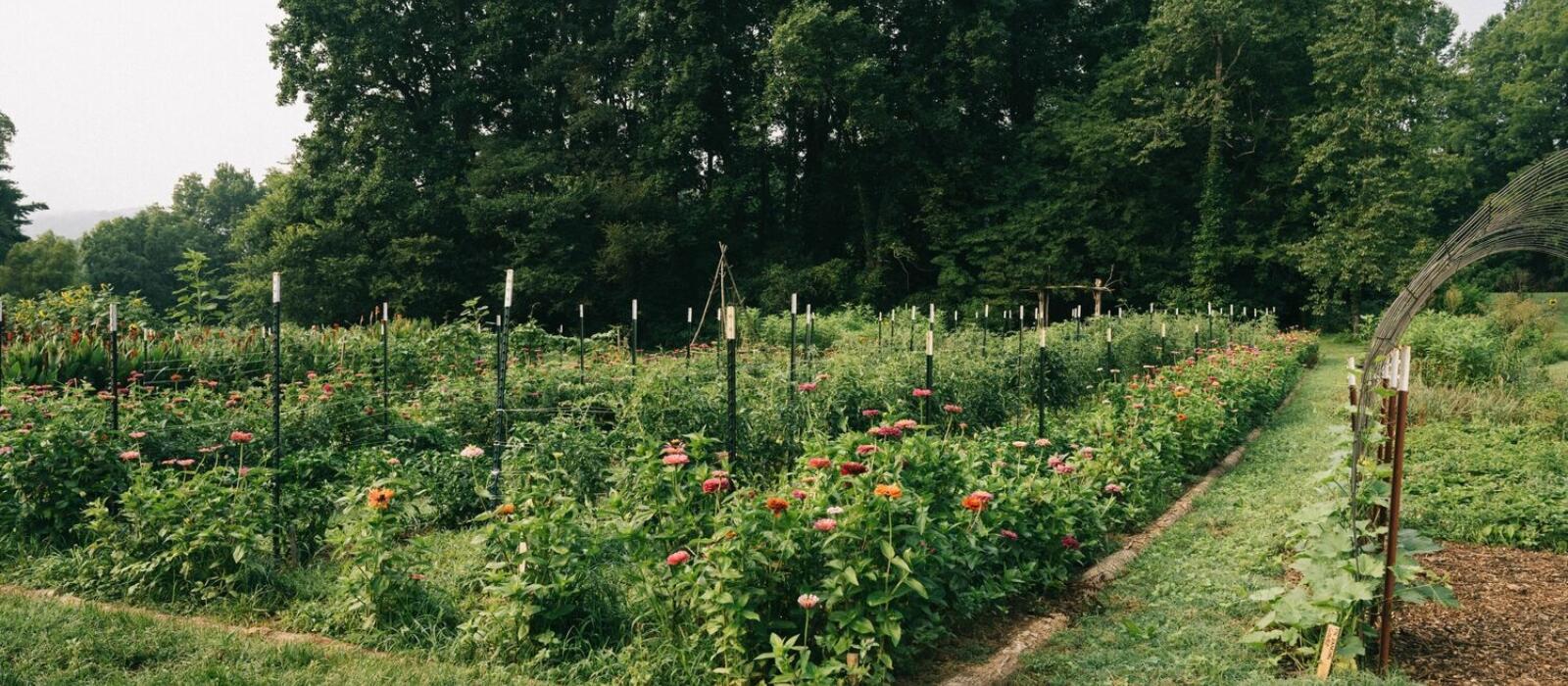Story
Feed Your Soil

Want your garden and household plants to thrive all season long? One of our not so hidden secrets to success at the Farm is compost!
First, what is compost? Compost is the work of a combination of natural occurring organisms, bacteria and insects. The organisms, bacteria and insects break down organic materials like debris and food scraps to make a healthy soil-like combination. At Blackberry Farm, we use debris from grass clippings, leaves, ground up corn stocks and hay; past cover crops from the Garden, like red clover, rye and barley; and food scraps from the restaurants on property. We love that the food scraps can be returned to the Garden to lessen waste from the kitchens and benefit the land for growing. (The team uses a woodchipper to grind our compost mixture into a fine texture and consistency for easy blending, but you can compost at home without machinery and still reap the rewards.)
What makes compost successful? Compost has to “cook down” and age to work the way its intended. We want the center of our compost pile to be 124 degrees to know that it’s reached the desired stage for use. As it “cooks,” the pile gets turned over multiple times to prevent burning, kind of like mixing a pot on a stovetop while cooking. After it’s been aged properly, it’s ready to use! To provide a steady rotation all year, our Garden team typically has about three piles, all at different stages of succession, so that we’re never without a compost pile for the upcoming planting seasons.
Why is composting worth it and how can it be used?Taking the proper steps when creating compost allows it to be as natural and clean as possible for the earth and everything that grows from it. Because everything used to make the compost has come from the earth, the natural ingredients add necessary nutrients back into the soil that help the soil structure prepare for more growth, which makes future plants more successful. And you don’t have to strictly use compost for outside gardening. You can also use compost for household plants and flowers. Anywhere you would use soil, compost can join. Compost can be added as a top layer over your soil or directly mixed into potting soil. So, it’s never too late to add it.
Whether you experiment with compost for full garden rows or a few houseplants, your plants are sure to thank you. There are lots of great resources for understanding how to compost at home if you’re interested. Be sure to do your research on the best methods that work for your space, what food and kitchen scraps you can and can’t compost, and how to best store your materials until you’re ready to incorporate it into your soil. The Garden team is always happy to answer questions as you stroll by during your stay!
